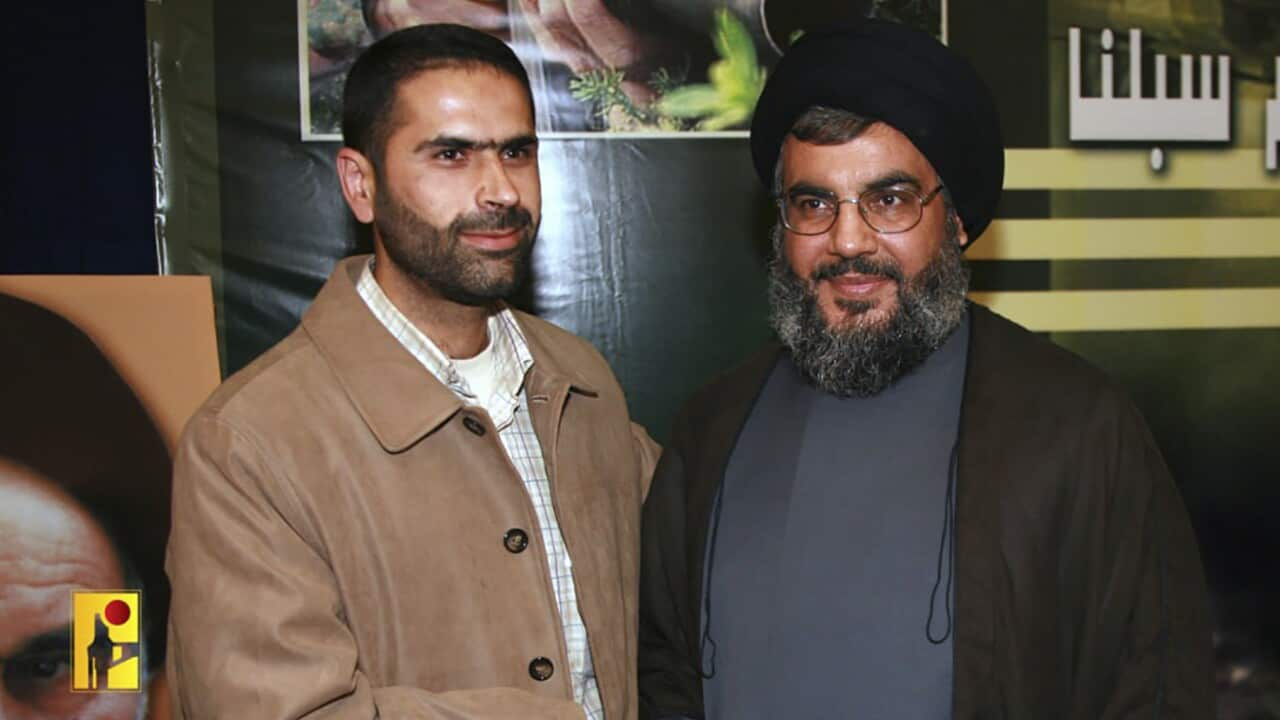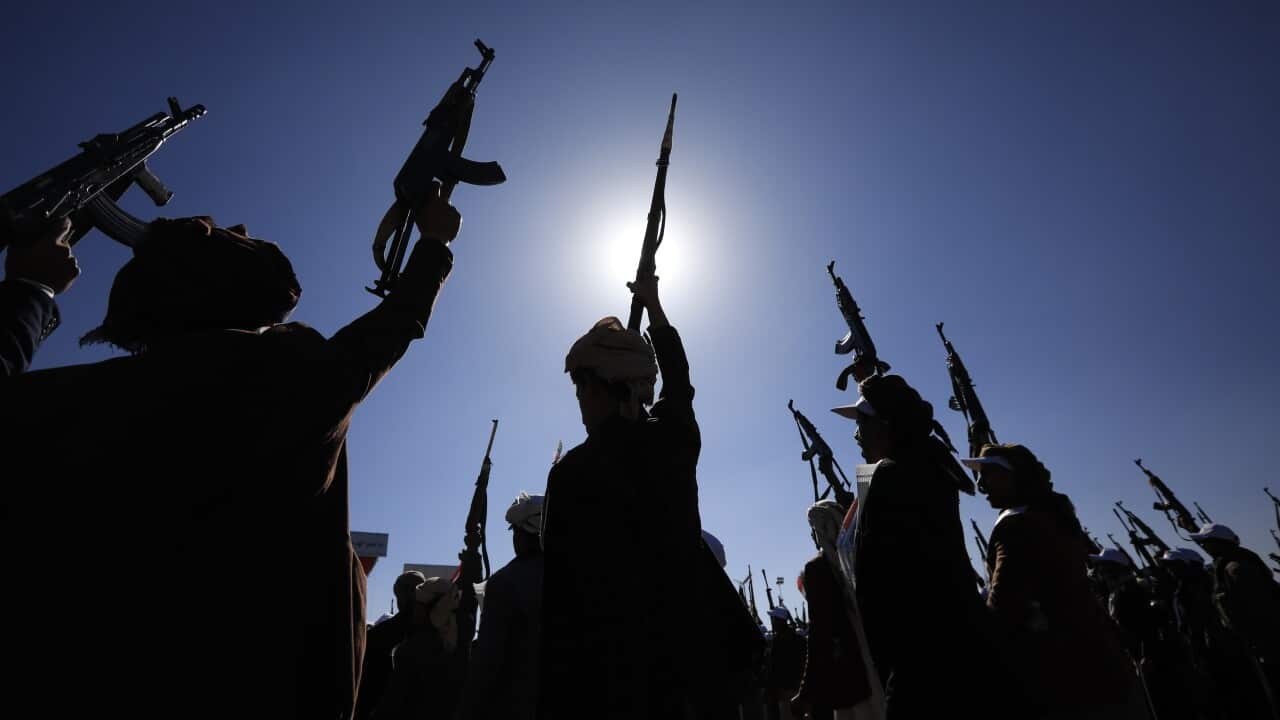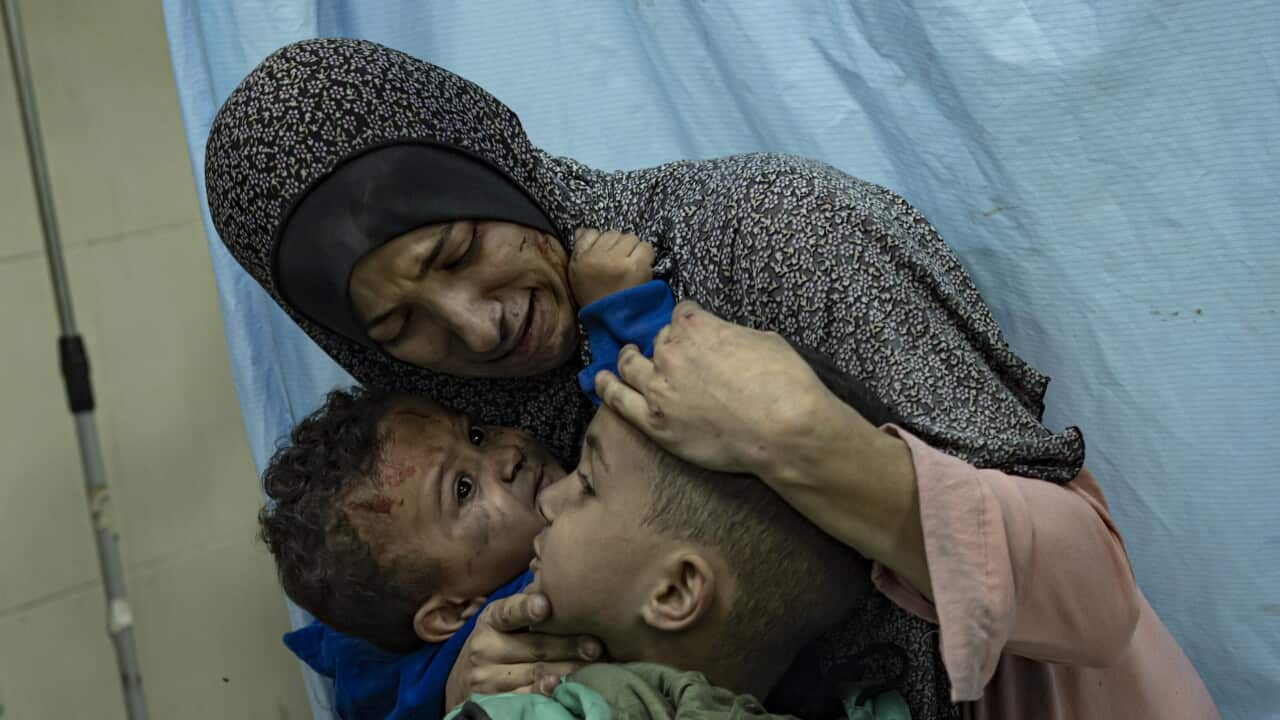Key points
- In response to the Hamas-Israel conflict, regional allies of Iran-backed Hamas have increased violent attacks.
- Experts say that, while a regional war is possible, it remains unlikely.
- They say all parties involved have an interest in limiting the possibility of a wider conflict.
As Israel continues to pummel the Gaza Strip and regional allies of Iran-backed Hamas step up violent attacks in response, it might seem as if the Middle East is on the brink of an all-out conflict.
However, at this stage, the tensions are unlikely to explode into a regional war, experts say.
In recent days, the US and the UK have launched strikes on Yemen in response to the country's , which has disrupted maritime trade through the Suez Canal.
Meanwhile, in Iraq, a claim Baghdad has denied, plus an attack on Islamic State group sites in Syria.
At the same time, Israel has conducted air and artillery strikes on Hezbollah, a Lebanese Islamist political party and militant group.
Hezbollah has exchanged regular cross-border fire with Israeli forces since the war started, with one Israeli strike in south Lebanon.
With so much tension building, is the region edging closer to war?
Is a regional war likely?
Experts agree that most players in the region want to avoid a large-scale conflict.
"The possibility of a regional war emerging is certainly present, but I think that almost all the parties involved are interested in limiting that possibility," Simon Pratt, a political science expert at the University of Melbourne, told SBS News.

Many of Israel's neighbours share support for the Palestinian cause but not for Hamas militants, analysts say. Source: SBS News
"I think Israel, the Iranians and the Arabs are very keen to limit what's happening and avert an all-out war in the Gulf and the Middle East," he said.
"The Arabs, particularly the United Arab Emirates, Saudi Arabia, Qatar and Egypt, are very keen to contain the conflict to the borders of the Gaza Strip and for it not to spill over to Egypt, Lebanon or the Persian Gulf, where the vast majority of their economic and the energy assets and interests lie."
Could tensions between Hezbollah and Israel escalate?
Iqtait believes interactions between Israel and Hezbollah could dictate the potential spillover of the conflict.
But he says Lebanon and Hezbollah are "more responsible than previously perceived" and he believes the tension won't grow into a major conflict.
"They haven't been dragged into an open confrontation with the Israeli military, even though the Israeli military has targeted several of their key leaders.
"I think over time Hezbollah is going to be more courageous and target towns, cities and targets deeper inside of Israel but I don't think that either side is interested in completely expanding confrontation, at least at this stage."
Hezbollah is backed by Iran and leads a multi-party alliance that holds just under half the seats in Lebanon's parliament. It's listed as a terrorist organisation by countries including Australia, the US, Germany and the UK.
Earlier in January, .
But while there's a "slim chance" of significant escalation, both sides are trying to not be too provocative, says Martin Kear, a Middle East expert at the University of Sydney.
"They're doing the minimum to express their particular narrative," he told SBS News. "Hezbollah is simply engaging in artillery exchanges with Israel, which they've done before. And while that's symbolic, I would be surprised if it escalates to anything more."

The Lebanon-Israel border has been the site of regular clashes between Israeli forces on one side and Hezbollah and Palestinian armed groups on the other since the beginning of the Hamas-Israel war. Source: AAP / Hussein Malla/AP
"Something will have to change," he said. "But I don't think it will take the form of a major war."
How problematic are the attacks in the Red Sea?
The Houthis say are a reaction to the slaughter of Palestinians, so while Israel continues to attack Gaza, we can expect the Houthi attacks – as well as counterattacks by the US and the UK – to continue, Kear says.
"It's just a lot of hot air, a lot of chest thumping."
Pratt doesn't think the tension will escalate further and says the Houthis are largely acting for their own reasons.
"I think they've successfully baited the US into massively expanding their regional and local image," he said.
"But I don't think it makes any difference really for Israel. I think the Houthis are mostly focused on the domestic context and their ongoing peace negotiations with Saudi Arabia."

Attacks in the Red Sea in recent weeks have prompted major shipping companies to reroute their operations and raised concerns of prolonged disruptions to global trade. Source: AAP / Mohamed Hossam
"It will probably drive up the cost of all sorts of commodities for much of the world since shipping that has to go around the Cape (of Good Hope) rather than through the Suez Canal will be a lot more expensive."
Should we worry about tensions between Iran and Iraq?
Kear says that, while Iran supports Hamas, it is not closely involved in the Hamas-Israel conflict and what we're seeing is a complex yet relatively harmless power play between nations.
"When it comes to Iran's loyalty to Hamas, it's more a case of 'the enemy of my enemy is my friend'," he said.
"Iran is dealing with domestic problems so it suits them to be promoting the Houthis and the Palestinians and to be poking Iraq a bit. Iran is very cognisant of not being dragged into any sort of regional conflict, particularly with the US because it'd lose.
"Meanwhile, Iraq is reliant on the US and other international support money so it can't be too pro-Iran, but it doesn't want to be seen as a proxy of Iran either. So it suits them to poke the tiger."
Pratt agrees that Iran is treading a safe path.
"Iran is very careful about what it's currently willing to allow from its proxies or what it's currently willing to support.
"Iran doesn't want a gigantic war and neither does the US."
Israel has bombarded Gaza since Hamas' 7 October attack in which more than 1,200 people, including an estimated 30 children, were killed and over 200 hostages taken, according to the Israeli government.
Around 24,500 people have been killed in Gaza since 7 October, mostly women and children, according to the health ministry in Hamas-controlled Gaza.
The United Nations says the war has displaced roughly 85 per cent of Gaza's 2.4 million people, many of whom have been forced to crowd into shelters and struggle to get food, water, fuel and medical care.
The war between Hamas and Israel is the latest escalation in a long-standing conflict.
Hamas is a Palestinian political and military group, which has governed the Gaza Strip since the most recent elections in 2006.
Hamas’ stated aim is to establish a Palestinian state and stop the Israeli occupation of Gaza and the West Bank, illegal under international law.
Hamas in its entirety is listed as a terrorist organisation by Israel, the United States, the European Union, Australia, Canada, the United Kingdom, Japan and Paraguay. Other countries list only its military wing as a terrorist group.
In 2021 the International Criminal Court opened an investigation into alleged Israeli war crimes in the Palestinian territories dating back to 2014, including the recent attacks of both Israel and Hamas.













